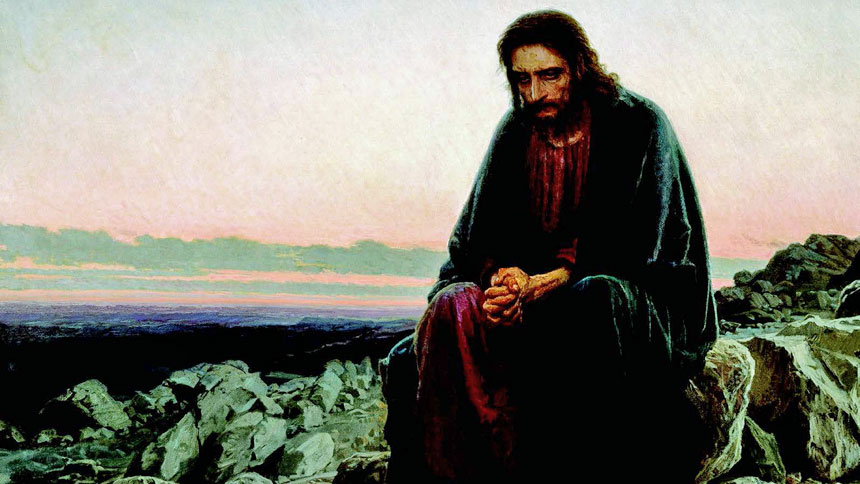
Starting Ash Wednesday, Catholics enter the season of Lent, where we are called to fast, pray, give alms, and prepare for the joyful celebration of Easter. However, for many of us, we approach Lent simply as an uncomfortable time of reluctantly “giving up x” or “doing more y.” We just try to survive Lent until we can satiate our increasing hunger for dessert, Instagram, alcohol or the snooze button. Also, for the record, I never want meat as badly as I do on Fridays in Lent.
Things changed for me when I started asking Jesus to transform my understanding of this liturgical season. Immediately following his baptism, the Spirit led Jesus into the wilderness, where he fasted and prayed for 40 days and 40 nights. It was a time of preparation and temptation before his earthly ministry began in earnest. Then, in one of those beautiful moments when Scripture both states the obvious and provides hope for all of us, Matthew 4:2 says, “and afterward he was hungry.” While it’s consoling to know that Jesus had hunger pains, I invite you to consider his time in the desert from a different perspective.
While fasting is extremely valuable, and intentional discomfort can discipline us as we grow in holiness, the Spirit led Jesus into the wilderness not just to make him hungry, but also to demonstrate the power and necessity of solitude and silence. Without intentional withdrawals from the distractions and noise of the world, we run the risk of missing the still small voice of God and remaining trapped in our old habits and desires. Solitude is not necessarily the same as isolation, but time alone with God, without noise (turn off your phone!), trains us to find ourselves in him. Henri Nouwen, a Dutch priest and theologian of the 20th century, once wrote, “Solitude is the furnace of transformation ... solitude is not a private therapeutic place. Rather, it is the place of conversion, the place where the old self dies and the new self is born, the place where the emergence of the new man and new woman occurs.” I can think of no better description of Lent; striving to cast off the old self so a new, purified and resurrected self can emerge.
Ironically, Jesus’ time without food, water and companionship didn’t weaken him, but strengthened him. He left the desert more equipped for the mission ahead because his soul had feasted on undistracted union with the Father. Let’s eagerly meet the Lord in the desert this Lent, and remember Easter is not simply the finish line of Lent but the starting line of our new life in the resurrected Christ.
Pete Burak is the director of i.d.9:16. He has a master’s degree in theology, and is a frequent speaker at events for youth and young adults.

